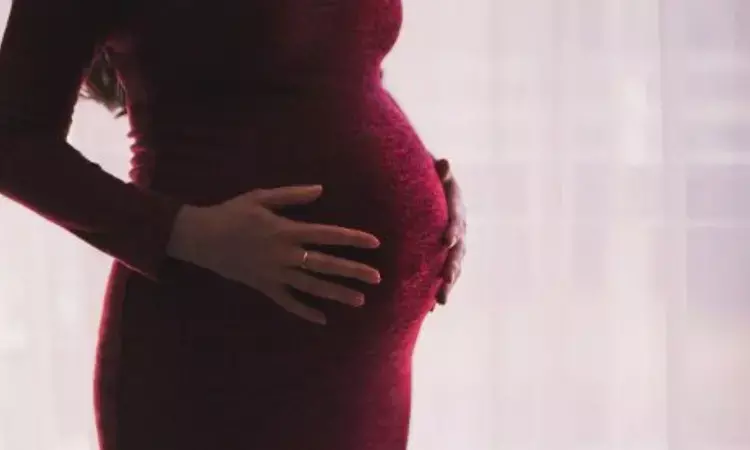- Home
- Medical news & Guidelines
- Anesthesiology
- Cardiology and CTVS
- Critical Care
- Dentistry
- Dermatology
- Diabetes and Endocrinology
- ENT
- Gastroenterology
- Medicine
- Nephrology
- Neurology
- Obstretics-Gynaecology
- Oncology
- Ophthalmology
- Orthopaedics
- Pediatrics-Neonatology
- Psychiatry
- Pulmonology
- Radiology
- Surgery
- Urology
- Laboratory Medicine
- Diet
- Nursing
- Paramedical
- Physiotherapy
- Health news
- Fact Check
- Bone Health Fact Check
- Brain Health Fact Check
- Cancer Related Fact Check
- Child Care Fact Check
- Dental and oral health fact check
- Diabetes and metabolic health fact check
- Diet and Nutrition Fact Check
- Eye and ENT Care Fact Check
- Fitness fact check
- Gut health fact check
- Heart health fact check
- Kidney health fact check
- Medical education fact check
- Men's health fact check
- Respiratory fact check
- Skin and hair care fact check
- Vaccine and Immunization fact check
- Women's health fact check
- AYUSH
- State News
- Andaman and Nicobar Islands
- Andhra Pradesh
- Arunachal Pradesh
- Assam
- Bihar
- Chandigarh
- Chattisgarh
- Dadra and Nagar Haveli
- Daman and Diu
- Delhi
- Goa
- Gujarat
- Haryana
- Himachal Pradesh
- Jammu & Kashmir
- Jharkhand
- Karnataka
- Kerala
- Ladakh
- Lakshadweep
- Madhya Pradesh
- Maharashtra
- Manipur
- Meghalaya
- Mizoram
- Nagaland
- Odisha
- Puducherry
- Punjab
- Rajasthan
- Sikkim
- Tamil Nadu
- Telangana
- Tripura
- Uttar Pradesh
- Uttrakhand
- West Bengal
- Medical Education
- Industry
Trisomic conceptions associated with subsequent diagnoses of infertility, reveals research

Researchers in a recent study found that women who had trisomic pregnancies were at a higher risk of being diagnosed with infertility in the later years. A study was published by Satu W. and colleagues in the International Journal of Obstetrics and Gynecology. The authors carried out a nationwide cohort study in Finland to determine any linkage with gynecologic or reproductive disorders with regard to trisomic conceptions. The data sources were obtained from the Registry of Congenital Malformations and the Finnish Maternity Cohort.
In this large study, cases comprised all women with a pregnancy trisomy between 1987 and 2018, while the respective trisomies were T13 (n=351), T18 (n=1065), and T21 (n=4369), each matched with population controls based on age, residence, and timing of pregnancy.These cases were cross-linked to ICD-10 diagnoses from the National Care Registry for Health Care, covering the period 1996–2019. The research was restricted both to inflammatory disorders, ICD-10: N70–N77, and non-inflammatory disorders of the genital tract, ICD-10: N80–N98. Crude odds ratios with 95% confidence intervals were calculated to estimate the associations of such diagnoses with trisomic conception.
The key findings of the study were:
• The study revealed that a diagnosis of female infertility (ICD-10: N97) was associated with trisomic conceptions (OR: 1.19, 95% CI: 1.08–1.32).
• This association was particularly notable for T18 (OR: 1.29, 95% CI: 1.03–1.61) and T21 (OR: 1.17, 95% CI: 1.04–1.32), but not for T13 (OR: 1.15, 95% CI: 0.75–1.72).
• When considering the timing of the infertility diagnosis, an elevated OR was observed only after the index pregnancy (OR: 1.81, 95% CI: 1.56–2.09).
• Increased odds of infertility following trisomic conceptions were noted both in women under 35 years (T18 OR: 1.91, 95% CI: 1.21–3.00; T21 OR: 1.68, 95% CI: 1.31–2.14) and in women 35 years or older (T18 OR: 2.17, 95% CI: 1.40–3.33; T21 OR: 1.87, 95% CI: 1.47–2.39), with no significant association found after T13 conceptions.
These findings provide evidence for a possible link between trisomic conceptions and subsequent diagnoses of infertility. In this study, associations were seen that suggest some common underlying mechanisms predisposing a woman to trisomy and infertility, irrespective of advanced maternal age. This study, however, does not allow for inference of causality.
Observational data suggest that trisomic conceptions are related to subsequent diagnoses of infertility, raising the possibility of partially shared mechanisms that might predispose to both. The association with the presence of trisomic conception draws attention to the need for data on reproductive history in the management of infertility.
Reference:
Wedenoja, S., Pihlajamäki, M., Gissler, M., Wedenoja, J., Öhman, H., Heinonen, S., Kere, J., Kääriäinen, H., & Tanner, L. (2024). Infertility following trisomic pregnancies: A nationwide cohort study. International Journal of Gynaecology and Obstetrics: The Official Organ of the International Federation of Gynaecology and Obstetrics. https://doi.org/10.1002/ijgo.15828
Dr Riya Dave has completed dentistry from Gujarat University in 2022. She is a dentist and accomplished medical and scientific writer known for her commitment to bridging the gap between clinical expertise and accessible healthcare information. She has been actively involved in writing blogs related to health and wellness.
Dr Kamal Kant Kohli-MBBS, DTCD- a chest specialist with more than 30 years of practice and a flair for writing clinical articles, Dr Kamal Kant Kohli joined Medical Dialogues as a Chief Editor of Medical News. Besides writing articles, as an editor, he proofreads and verifies all the medical content published on Medical Dialogues including those coming from journals, studies,medical conferences,guidelines etc. Email: drkohli@medicaldialogues.in. Contact no. 011-43720751


